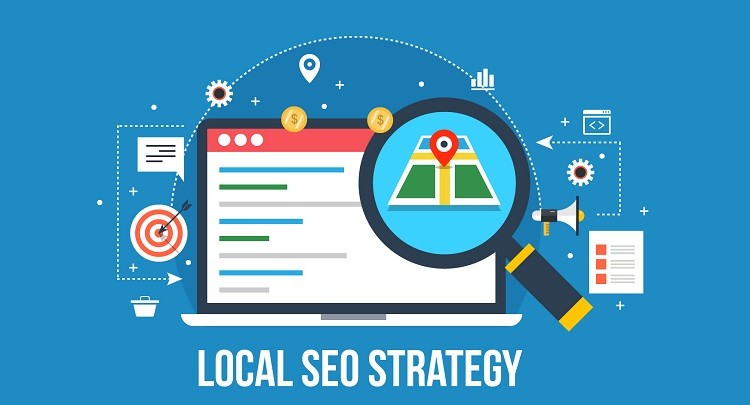Did you know that 50 percent of local search engine queries result in a store visit within one day?
Local search engine optimization, or SEO, can provide significant new opportunities for businesses that rely on local customers and word of mouth (looking at you, small businesses).
But it can be difficult to discern what practices are actually working to help with your local standing and what’s just toiling for no harvest. We’ll cover just how valuable local SEO is and what you can do to help yours.
What Is Local SEO?
via GIPHY
Most marketers understand that search engine optimization is an essential tool when it comes to getting a business found online. But the scale of the internet is overwhelming, especially if you’re looking to market to customers in your local area.
That’s where local SEO plays in. Local search helps customers find nearby businesses that can meet their needs or solve their problems.
For example, if you were to search for a “dentist near me” or “dentist in [specific area],” you’d expect to receive results of dental offices specific to the local area you indicated, right?
Local SEO has proven to be incredibly valuable to users. Google has even advanced to the point where it doesn’t even need to be told to search locally. It will offer local results first to meet user intent.
The Importance of Local Search
Reaching your local audience is important for establishing your business in its “home town.” Thirty five percent of all search traffic is local. Translation: a decent amount of your business is going to be sourced straight from your community.
Local SEO and marketing provides a wide array of advantages, but here are just a few:
You’ll become more recognizable and familiar in your local community.
You’ll get word of mouth rolling.
Refining your messaging becomes easier.
You’ll be able to develop brand trust.
Your local area is a safe testing ground for new marketing strategies.
10 Local Search Ranking Signals You Should Know
A ranking signal is a characteristic of a site that search engines consider when ranking it. While these characteristics are not officially provided by search engine companies like Google, there has been an extensive amount of research showing the value of these factors.
Let’s review the most important ranking signals you need to know for improving local SEO.
Google My Business
Your Google My Business page tells Google a lot of important information, including the categories your business operates in and photos of your products, your employees, and your location.
Bing Places for Business
Just like how Google My Business works, Bing Places for Business shares details with Bing in order to get your site ranking for the right searches.
Online Directories
With so many popular directories, like Yellowpages and Apple Maps, you have a lot of opportunities to claim your listings to ensure your business information is accurate.
Review Site Listings
via GIPHY
Searchers use sites like Yelp and Angie’s List to hear more about your products or services, so it’s important to get listed so you’re found.
But don’t just leave reviews untouched. You can comment on both positive and negative ones to address customers directly. This shows Google your company is real.
NAP Consistency
Your name, address, and phone number (NAP) is going to be listed in so many different spots on the internet. Ensuring consistency makes Google rank you better because they want to deliver accurate information for searchers.
Social Media Listings
Twitter, LinkedIn, Facebook, and Instagram are among the most popular social media sites. By claiming each listing, you can ensure a consistent presence and direct social searchers to your site.
Domain Authority
From an SEO perspective, this is obvious. Your domain authority (DA) is a proprietary ranking score from Moz that suggests how well a site could potentially rank in search engine results pages (SERPs), so putting forth consistent effort to improve your score will have an impact on your local SEO.
Structured Data Markup
To put it simply, structured data formats are markup that is applied to text snippets, making the metadata and text enclosed within the XHTML tags more meaningful to computers. You can add structured data markups for local SEO components like hours, menu, website, phone number, and department information.
Consistent Optimized Content
Consistent content publication is key to driving SEO results. For your local ranking, you can create content using your primary keywords and your location. Keyword placement plays an important role here. Use your primary keywords and location naturally in your content and in your title and meta description.
Backlinks
Inbound links act as votes of confidence for you, so earning a diverse selection of high quality links from other reputable sources, as well as from local sites (community blogs, local news, etc.)
With these ranking signals in mind, you’re ready to start earning big local SEO wins.
Read more at:https://www.business2community.com/seo/how-to-rank-higher-in-local-search-results-02279769



